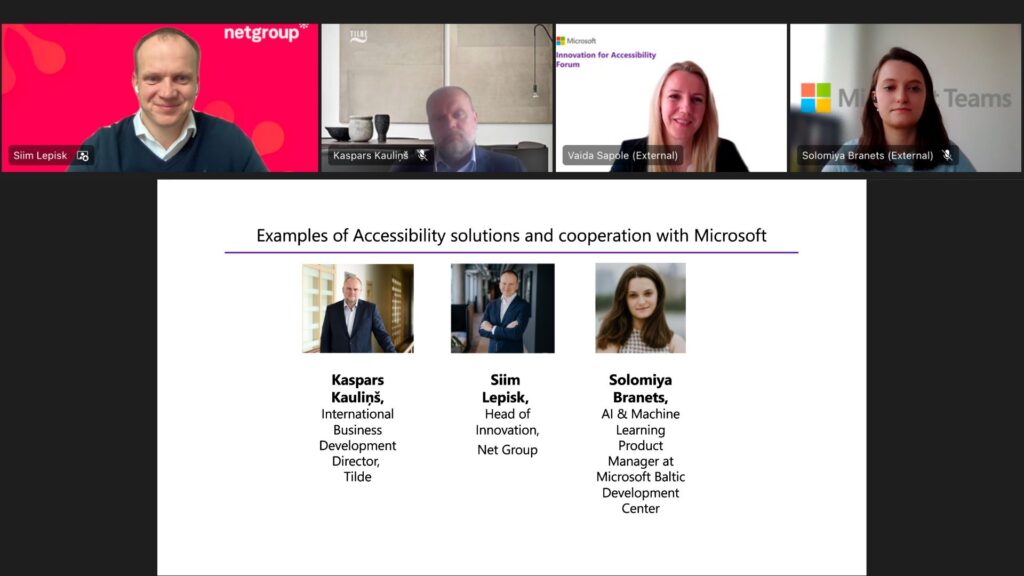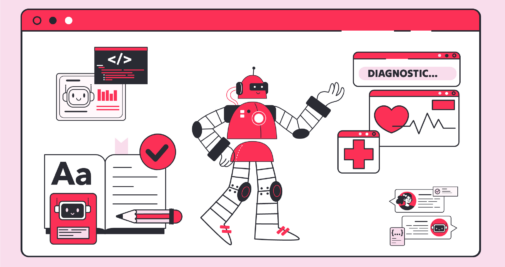This website uses cookies so that we can provide you with the best user experience possible. Cookie information is stored in your browser and performs functions such as recognising you when you return to our website and helping our team to understand which sections of the website you find most interesting and useful.
Our Head of Innovation, Siim Lepisk, recently participated as a panelist in the Microsoft event “Innovation for Accessibility Forum” which focused on the state of accessibility in the Baltics. It was an enlightening event, as it brought together experts to discuss the challenges faced by people with disabilities in accessing digital services and information.

At Net Group, we believe that accessibility is a key factor in creating a more inclusive and diverse society. That is why we are committed to building accessible digital solutions and promoting greater accessibility in the Baltics and beyond. As our Head of Innovation, Siim Lepisk stated at the event: “Accessibility is not just a legal requirement, but also a moral obligation. We believe that everyone should have equal access to information and digital services, regardless of their abilities.”
Technology can be a powerful tool in achieving this goal. We have invested in building accessibility into our software development process, ensuring that our solutions are accessible to all users. Our team of experts specializes in accessibility testing and compliance, and we work closely with our clients to ensure that their digital solutions are accessible as well.
Our virtual assistant system, Bürokratt, is a prime example of our commitment to providing efficient digital solutions. Bürokratt has been successfully implemented in Estonia and has proven to be a sophisticated system capable of handling a wide range of requests, including technical and police-related issues. In addition, we are continuously researching and developing solutions in niche areas such as medical text processing. Our machine-readable system accurately categorizes medical topics, enabling computers to provide personalized health recommendations.
The power of technology lies in solving challenges, and accessibility is one of the most pressing challenges we face today. At Net Group, we will continue to work towards building accessible digital solutions and promoting greater accessibility in the Baltics and beyond.
We fully support Microsoft’s efforts in promoting accessibility, and their voice-based services are a great example of how technology can be used to enhance accessibility. These services use natural language processing and machine learning to provide voice-based interfaces that can be used by people with a wide range of abilities.
Together, we can make accessibility a reality for all.
To read more about the state of accessibility in the Baltics and how to move forward, check out Microsoft’s article on the topic.



